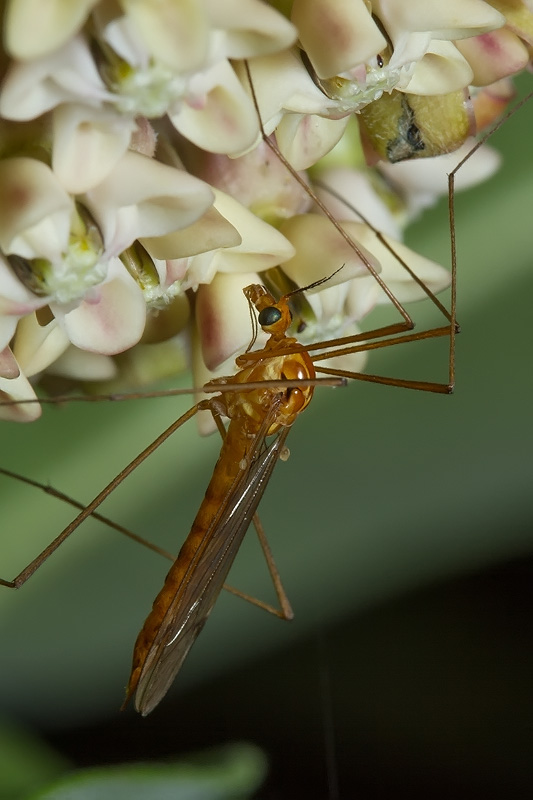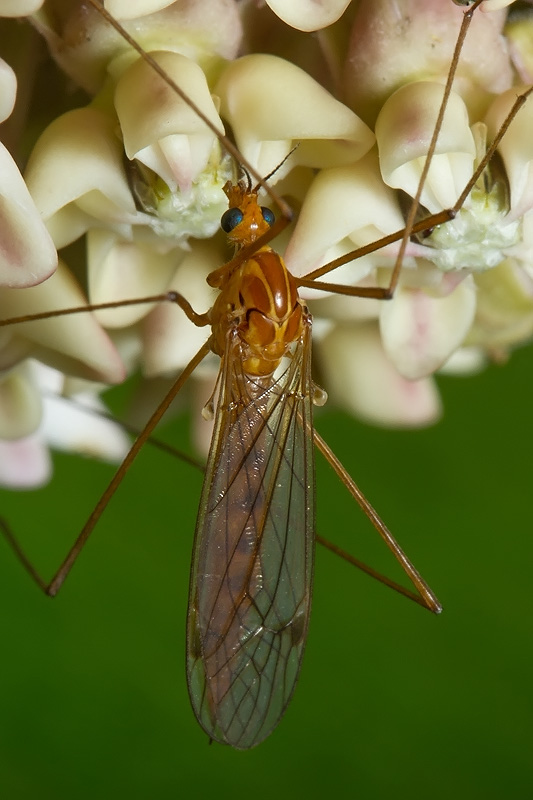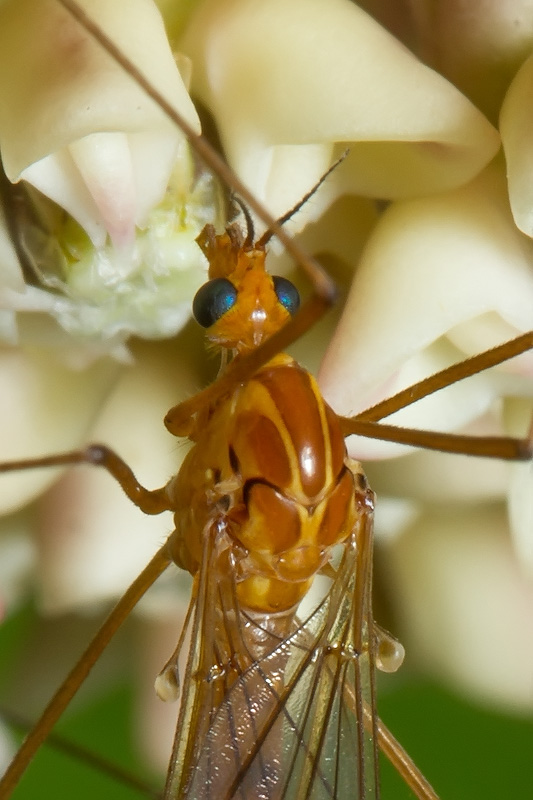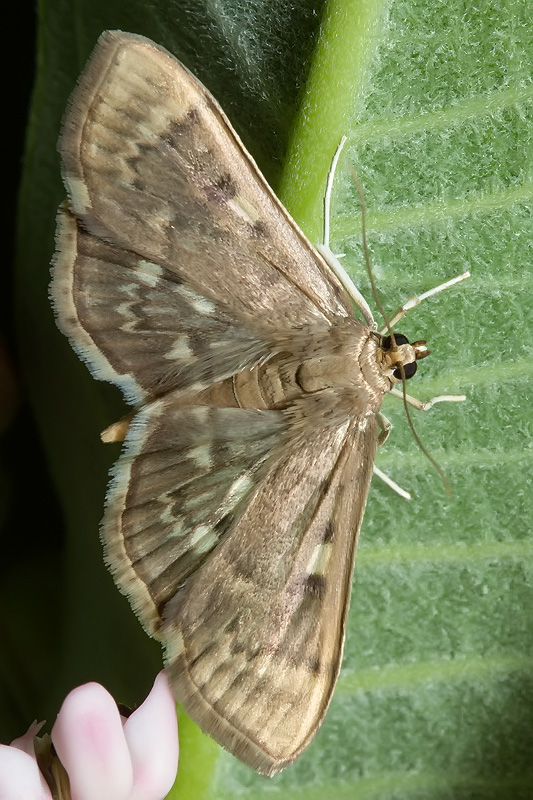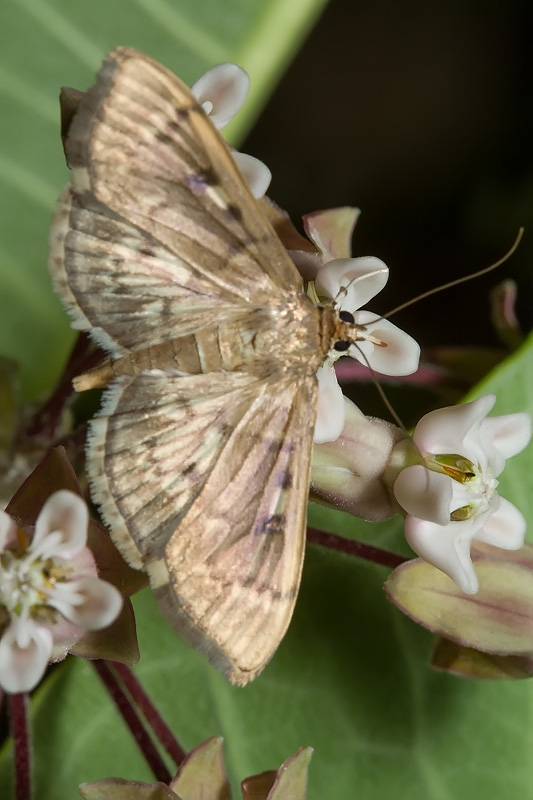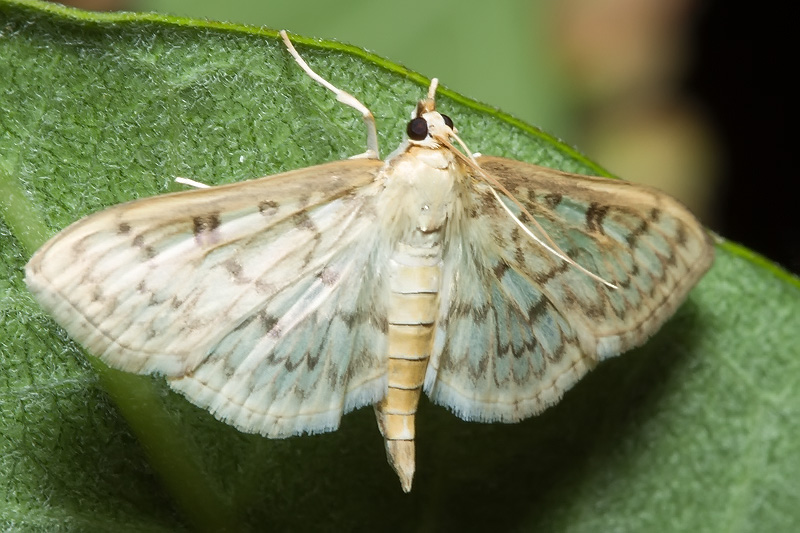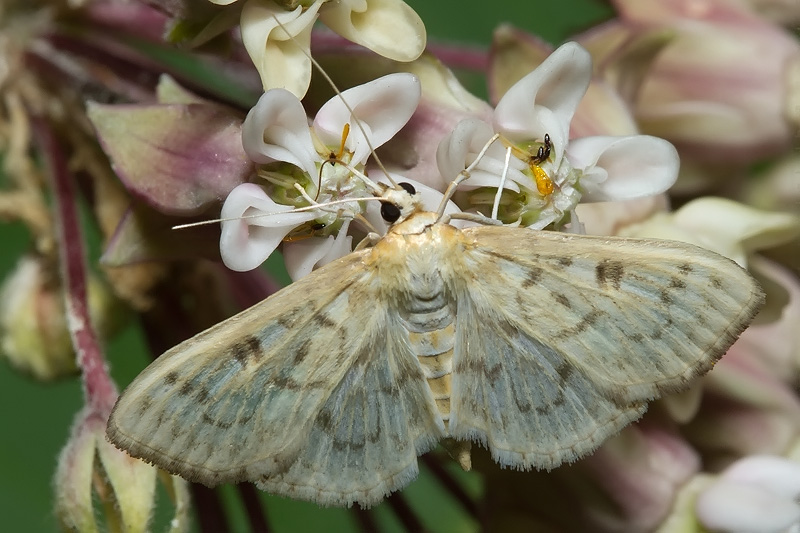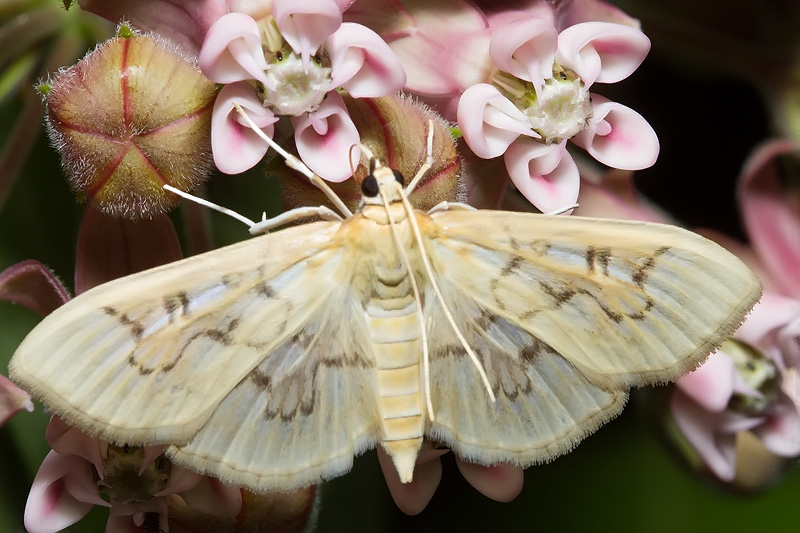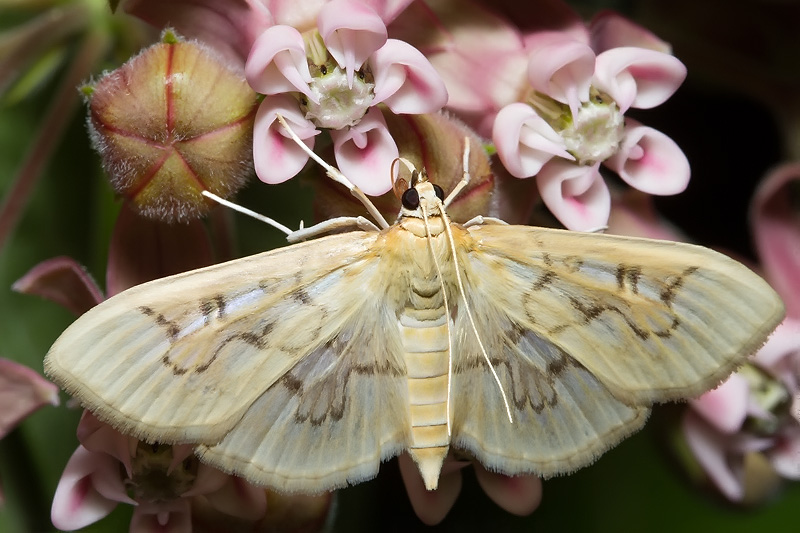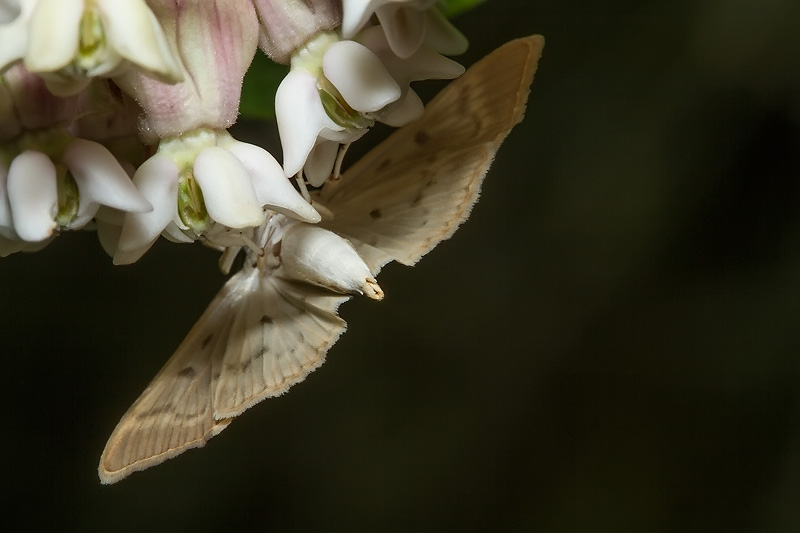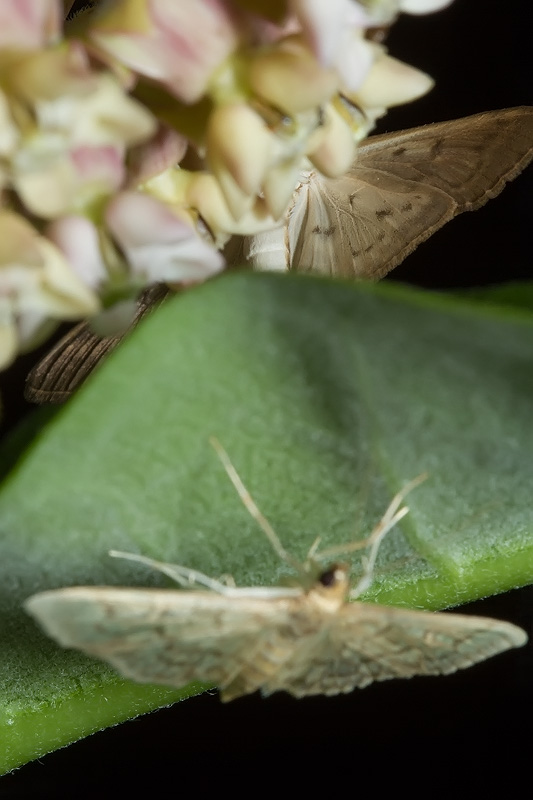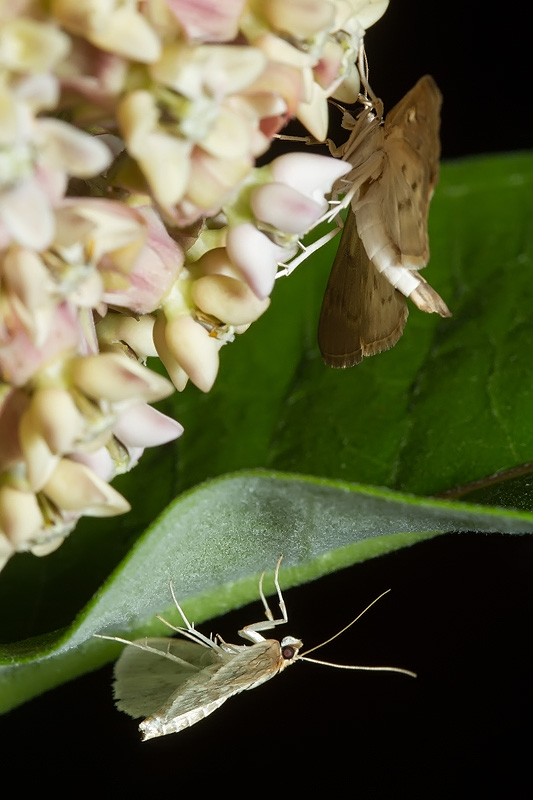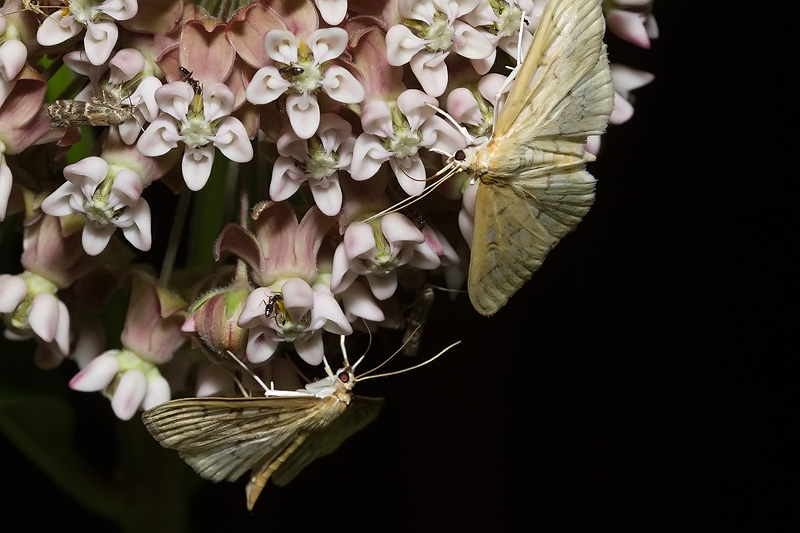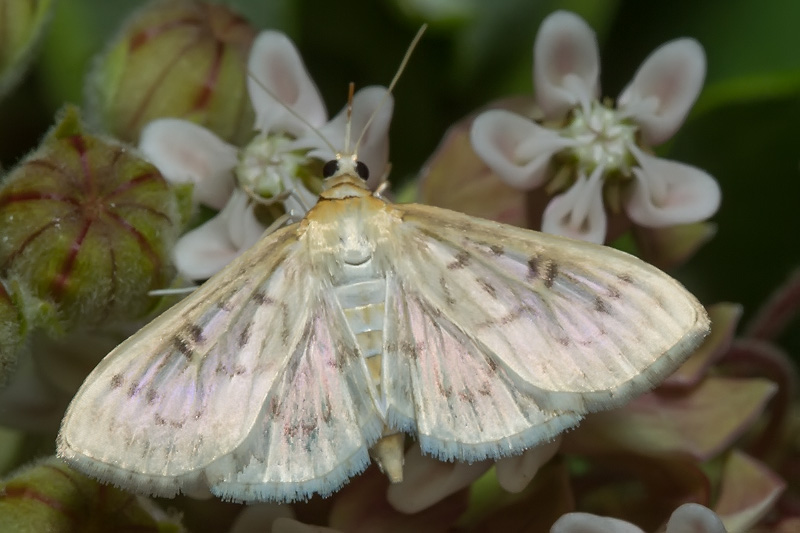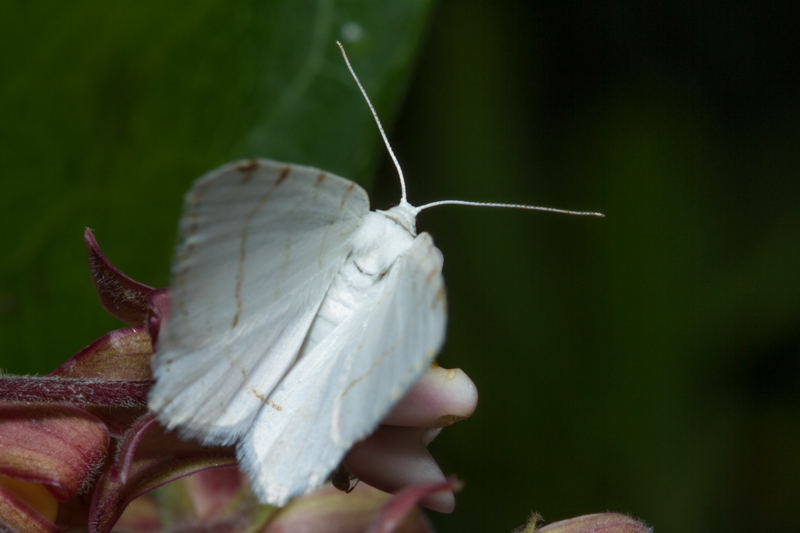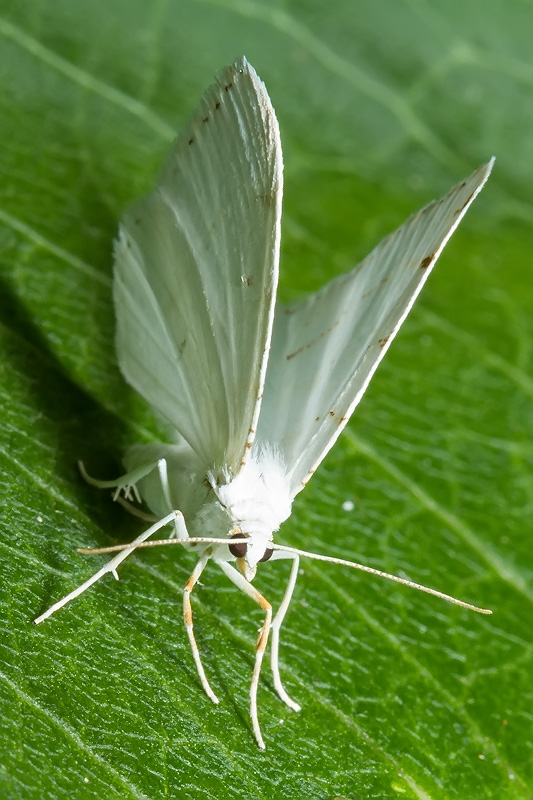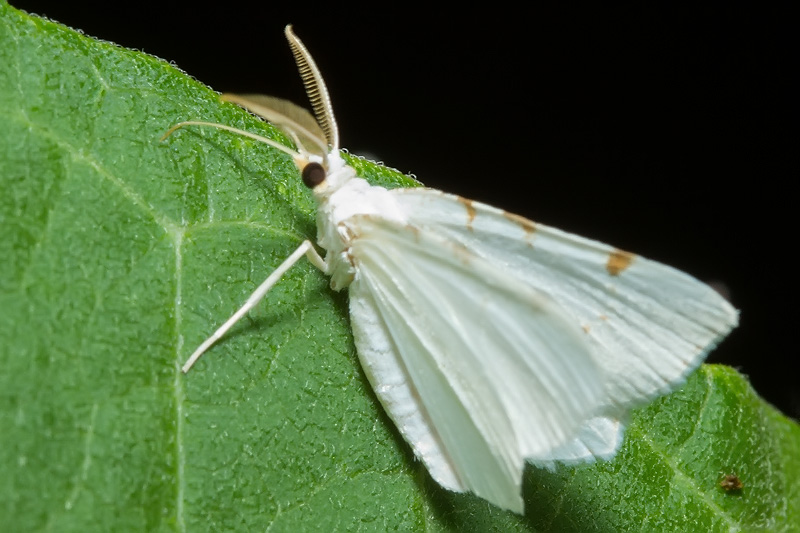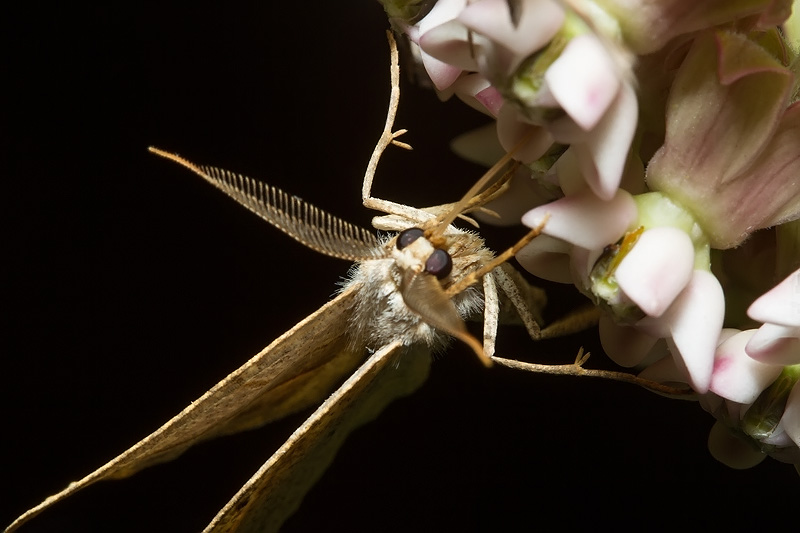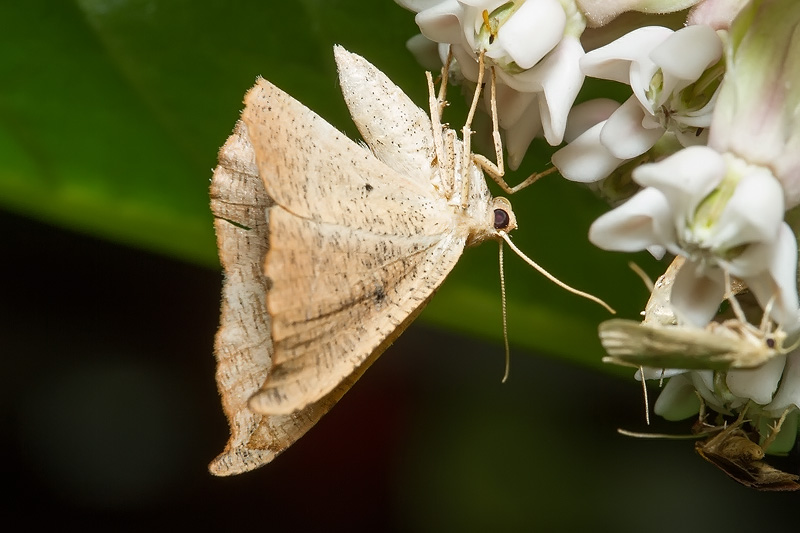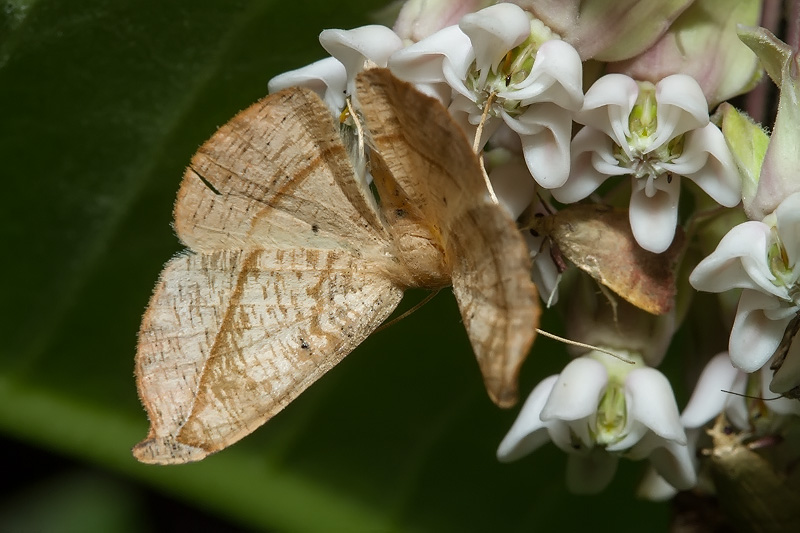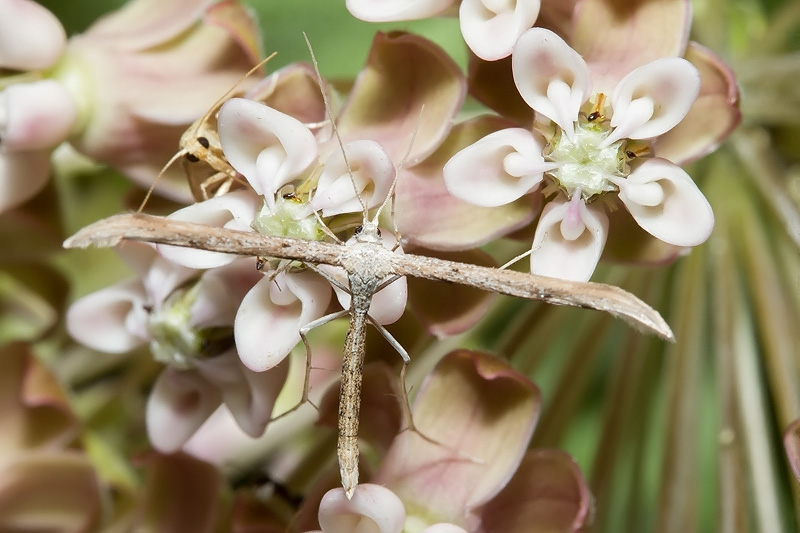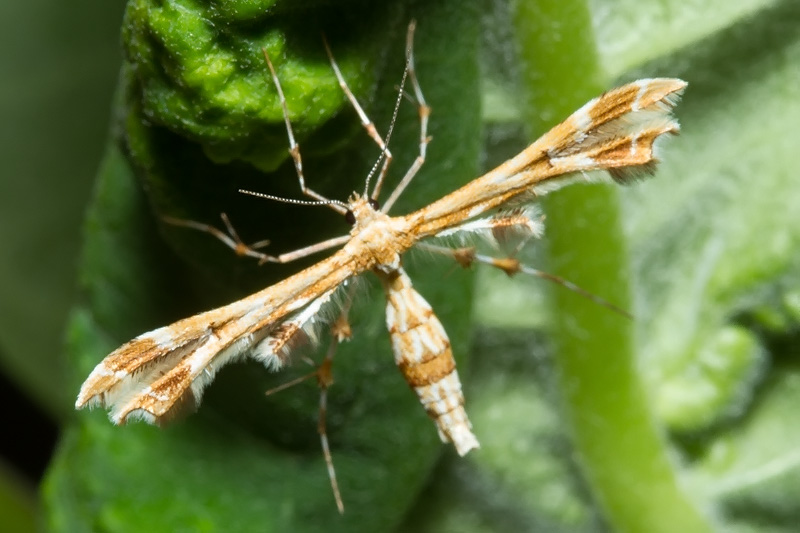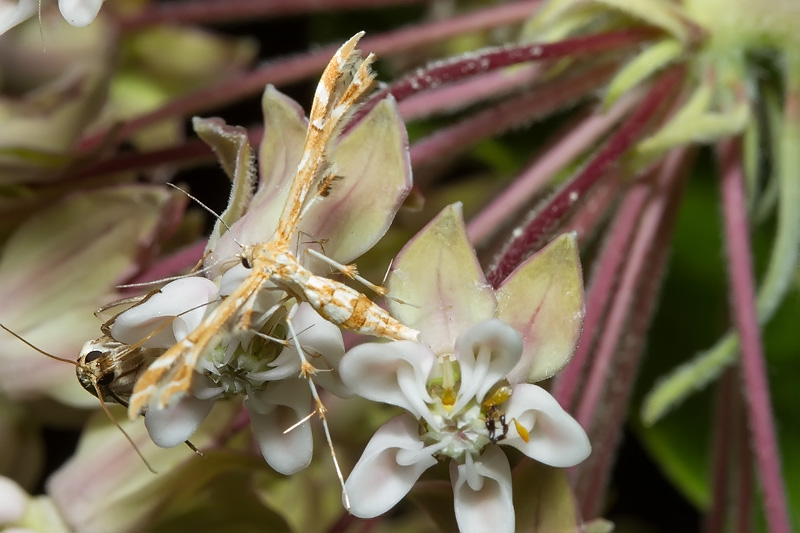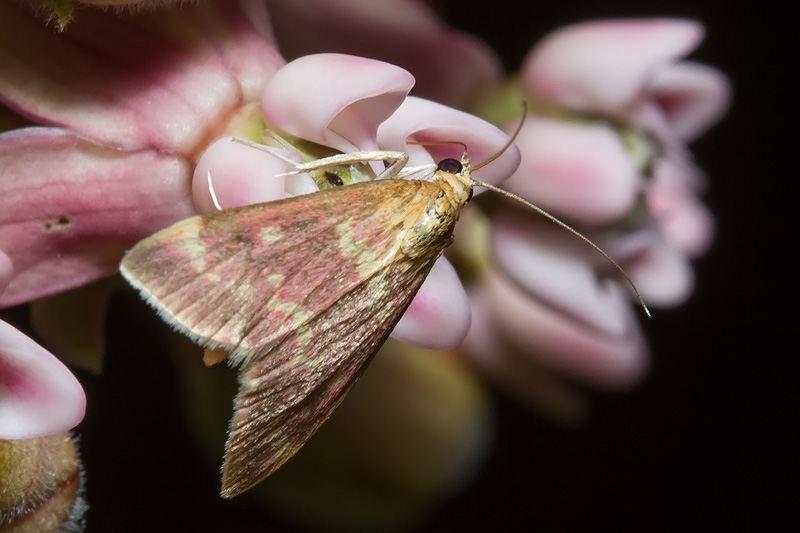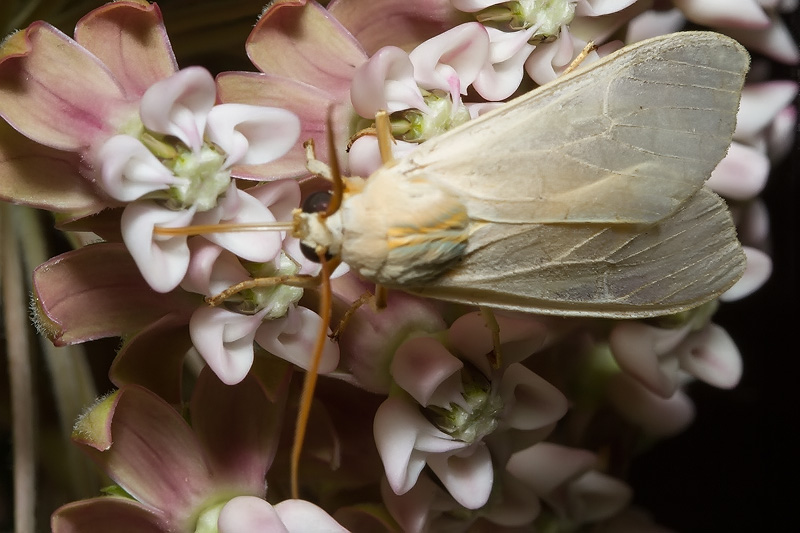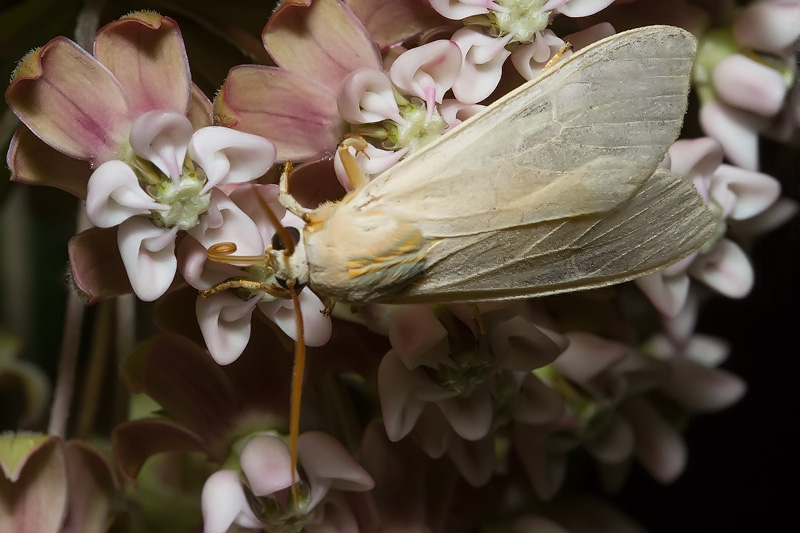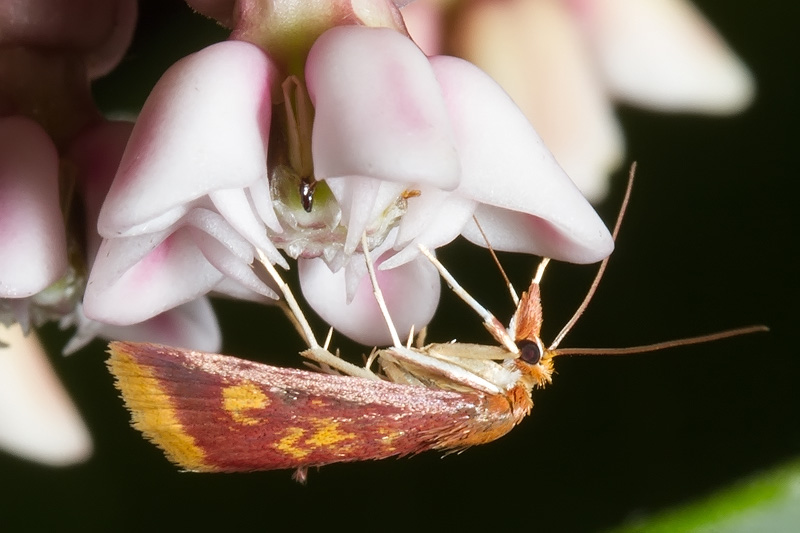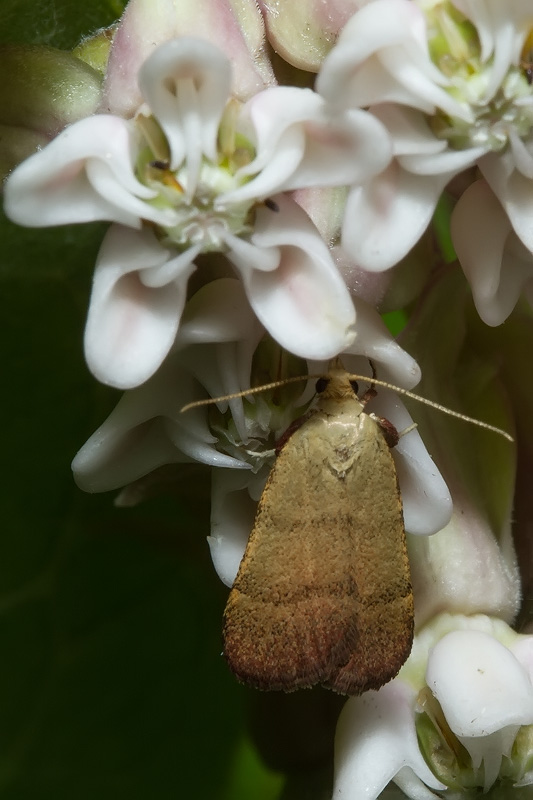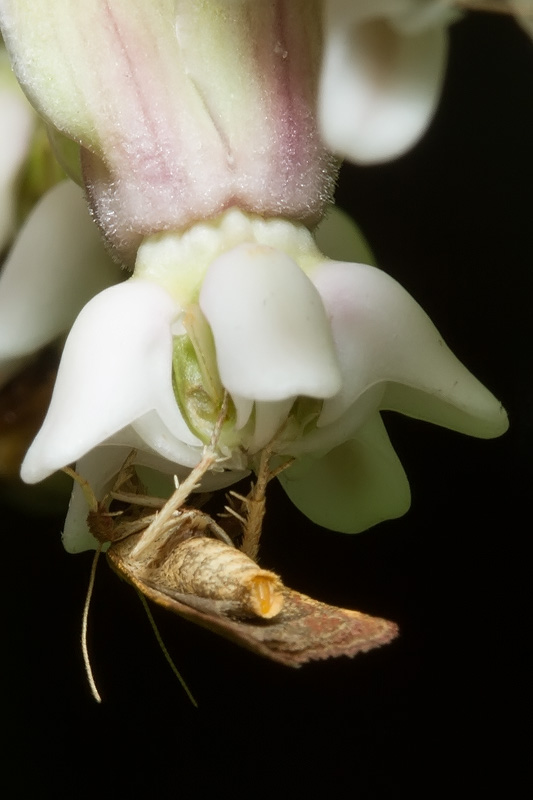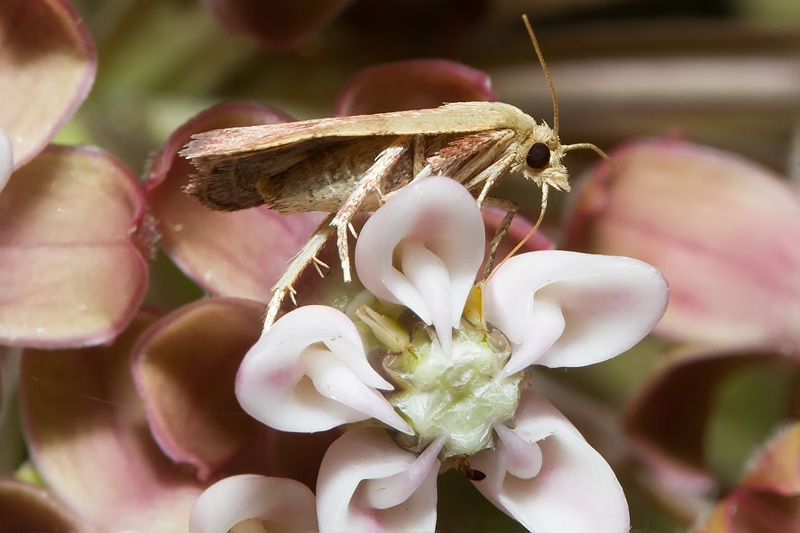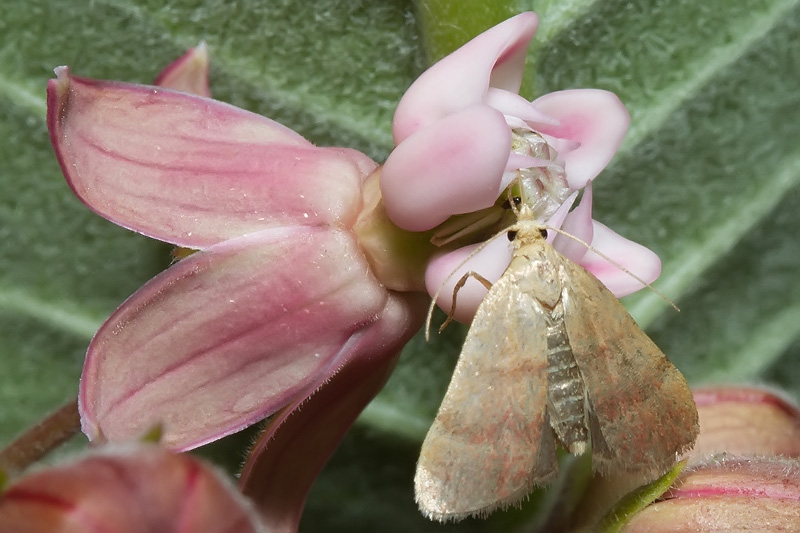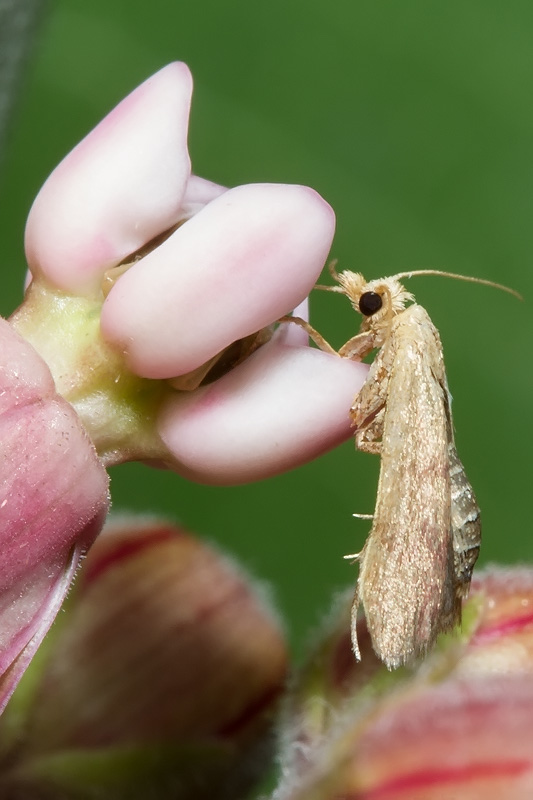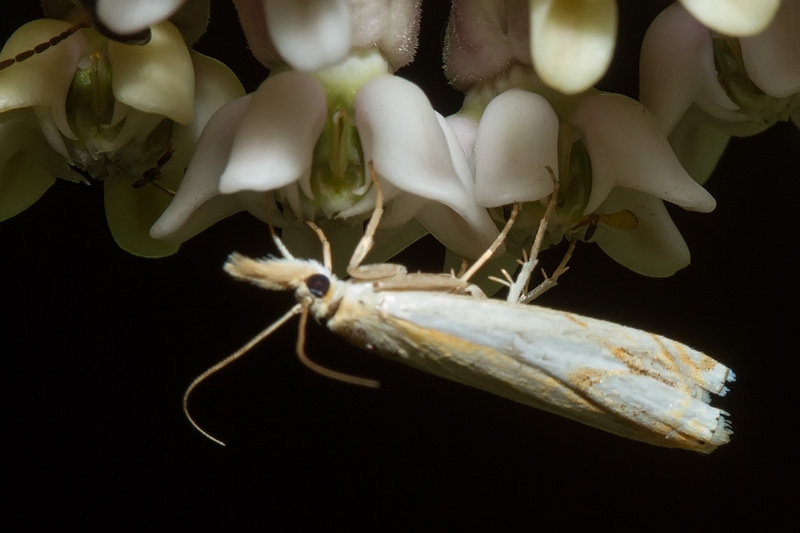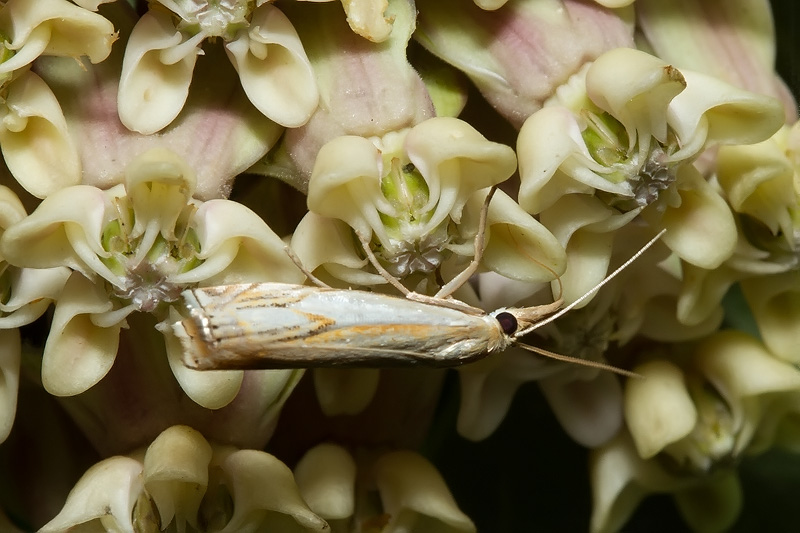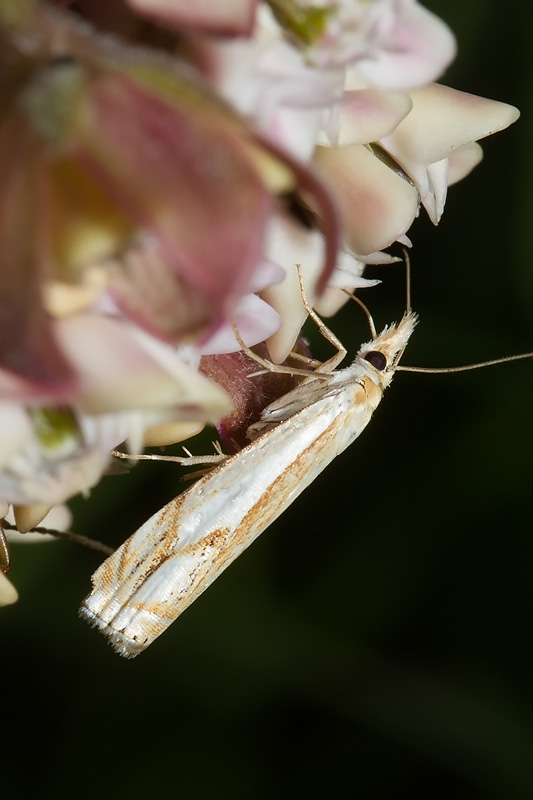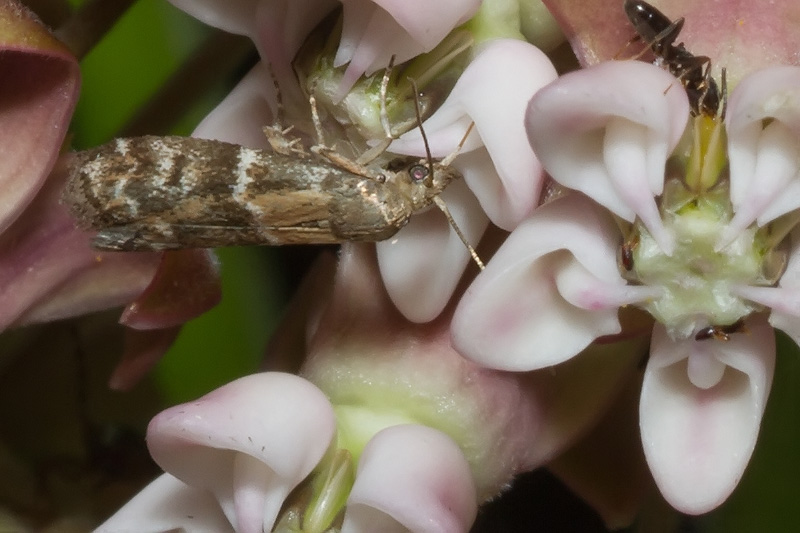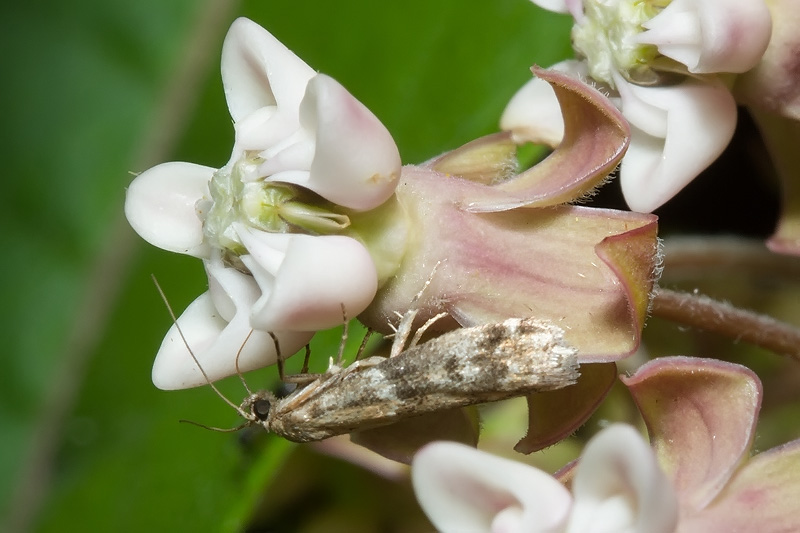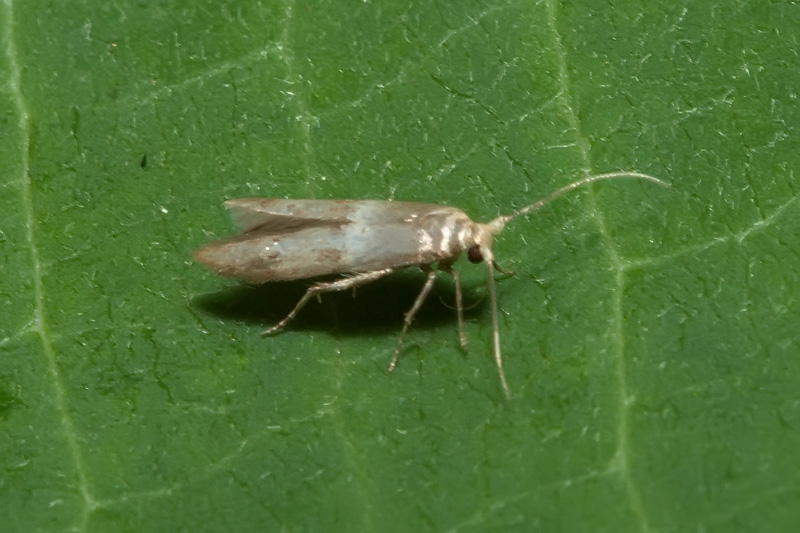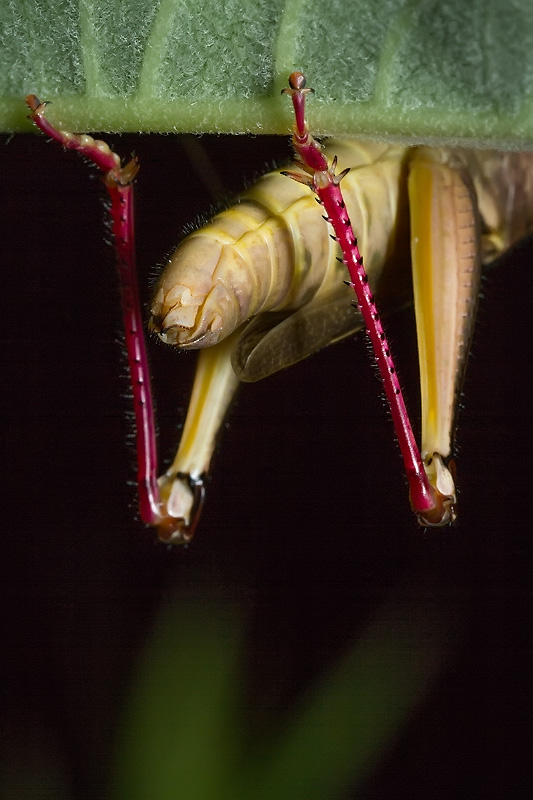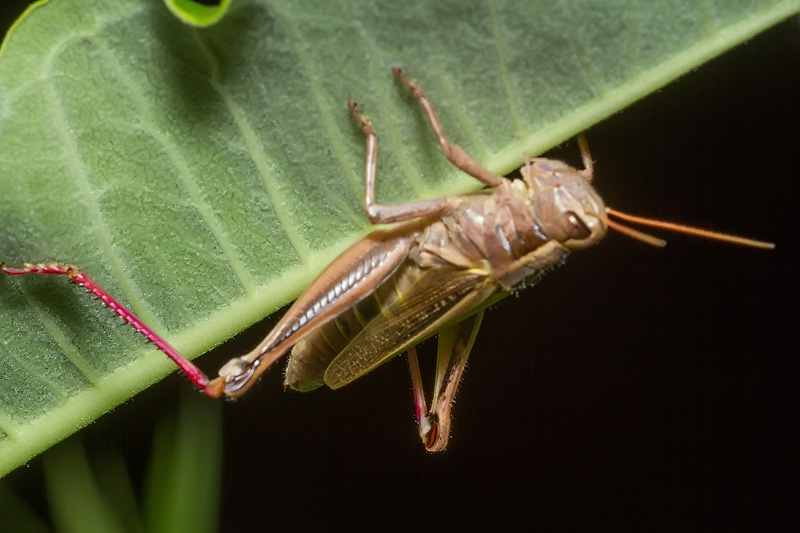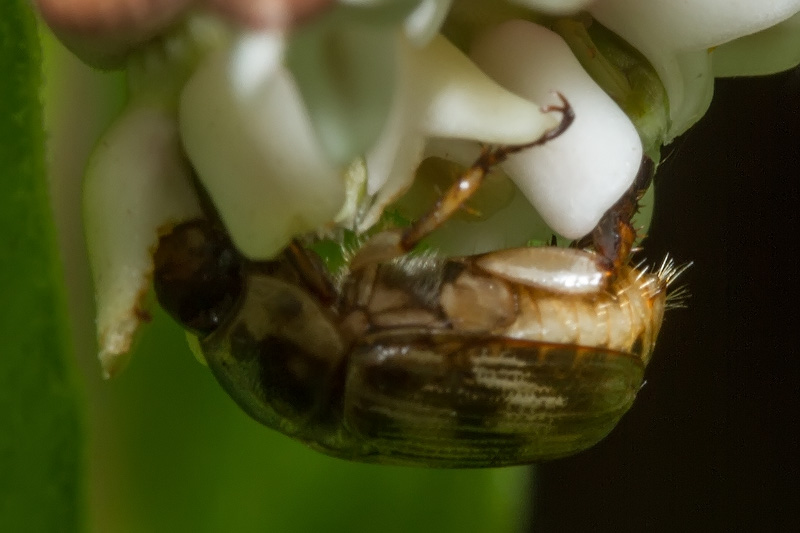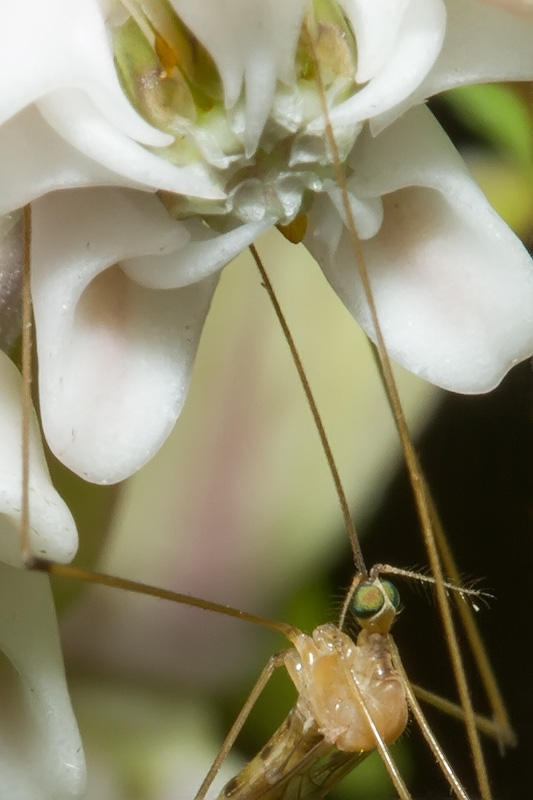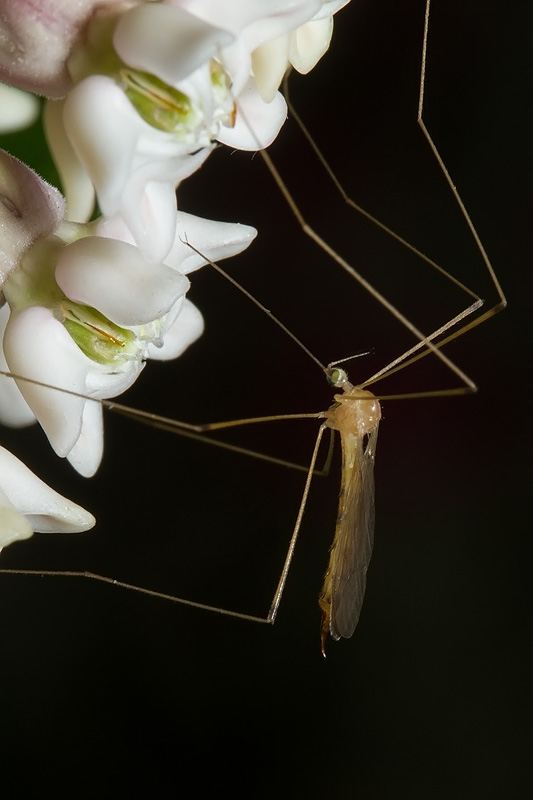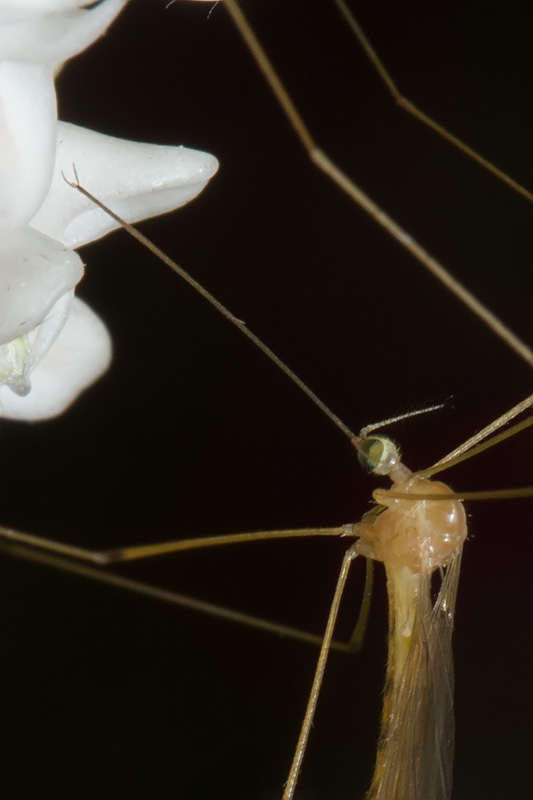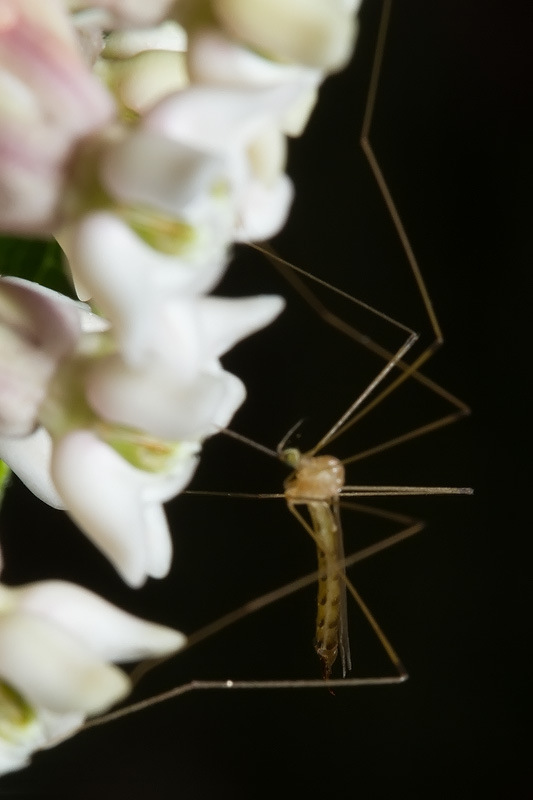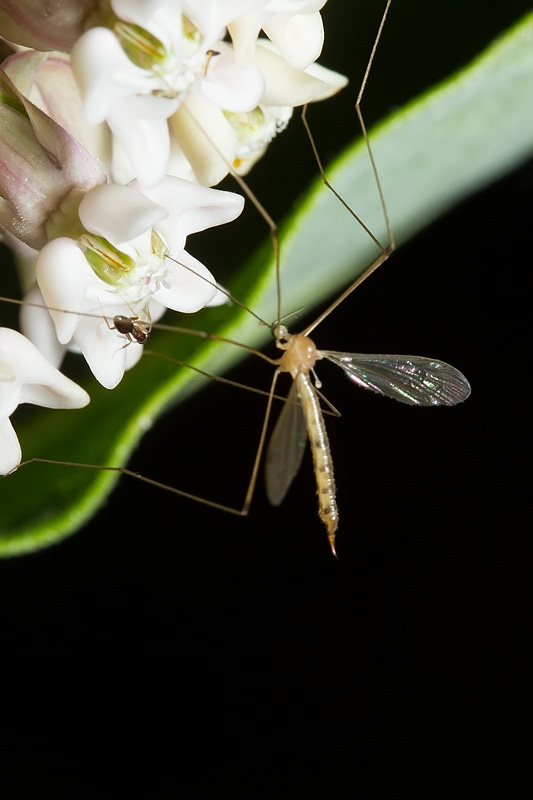(Mostly) Moths on Milkweed - July 5, 2013 Stan Malcolm Photos - Marlborough, Connecticut |
mAir Line Home Page RETURN to Moths on Milkweed Menu |
July 5th. Marlborough, Hartford County, Connecticut - 6:30-6:45 AM.
05-01-IMG_0805-export-screen.jpg A Crane Fly (Family Tipulidae). Early morning visitor or night visitor that stayed behind? |
05-02-IMG_0806-export-screen.jpg |
05-03-IMG_0806-export-screen-2.jpg Note the "normal" short beak, unlike the "elephant fly" of July 2nd (and again on the evening of July 5th - see below). The blue-green eyes are striking - and probably not preserved in dead specimens. |
. July 5th. Marlborough, Hartford County, Connecticut - 9:45-10:30 PM.
05-04-IMG_0821-export-screen.jpg |
05-05-IMG_0841-export-screen.jpg |
05-06-IMG_0819-export-screen.jpg |
05-07-IMG_0838-export-screen.jpg |
05-08-IMG_0845-export-screen.jpg |
05-09-IMG_0846-export-screen.jpg |
05-10-IMG_0839-export-screen.jpg |
05-11-IMG_0850-export-screen.jpg |
05-12-IMG_0848-export-screen.jpg |
05-13-IMG_0856-export-screen.jpg |
05-14-IMG_0879-export-screen.jpg |
05-15-IMG_0888-export-screen.jpg Speranza pustularia. |
05-16-IMG_0890-export-screen.jpg Speranza pustularia. |
05-17-IMG_0835-export-screen.jpg Speranza pustularia. |
05-18-IMG_0861-export-screen.jpg |
05-19-IMG_0824-export-screen.jpg |
05-20-IMG_0826-export-screen.jpg Right: Condylolomia participalis. |
05-21-IMG_0865-export-screen.jpg |
05-22-IMG_0868-export-screen.jpg |
05-23-IMG_0827-export-screen.jpg |
05-24-IMG_0816-export-screen.jpg Dave: Pyrausta signatalis? |
05-25-IMG_0851-export-screen.jpg Halysidota tessallaris. Banded Tussock Moth. |
05-26-IMG_0853-export-screen.jpg Halysidota tessallaris. Banded Tussock Moth. |
05-27-IMG_0822-export-screen.jpg Dave: Pyrausta acrionalis? |
05-28-IMG_0833-export-screen.jpg Condylolomia participalis. |
05-29-IMG_0831-export-screen.jpg Condylolomia participalis. |
05-30-IMG_0859-export-screen.jpg Condylolomia participalis. |
05-31-IMG_0880-export-screen.jpg |
05-32-IMG_0883-export-screen.jpg |
05-33-IMG_0834-export-screen.jpg |
05-34-IMG_0840-export-screen.jpg |
05-35-IMG_0847-export-screen.jpg |
05-36-IMG_0856-export-screen-2.jpg |
05-37-IMG_0858-export-screen.jpg |
05-38-IMG_0842-export-screen.jpg |
05-39-IMG_0875-export-screen.jpg |
05-40-IMG_0878-export-screen.jpg |
05-41-IMG_0832-export-screen.jpg |
05-42-IMG_0828-export-screen.jpg Another (or the same?) Crane Fly, Elephantomyia westwoodi, in the family Limoniidae as seen on July 2nd. That beak is amazing! |
05-43-IMG_0828-export-screen-2.jpg Elephantomyia westwoodi. |
05-44-IMG_0871-export-screen.jpg Elephantomyia westwoodi. |
05-45-IMG_0871-export-screen-2.jpg Elephantomyia westwoodi. Note the palps at the end of the beak. |
05-46-IMG_0872-export-screen.jpg Elephantomyia westwoodi. I was able to watch through the viewfinder as the fly probed and withdrew its beak. All the positioning is done with the legs moving the whole body up and down. Seems like quite a feat of nervous coordination between brain and thoracic ganglia - in a fly with a body length similar to the breadth of a single milkweed blossom. This is the "down" position... |
05-47-IMG_0873-export-screen.jpg Elephantomyia westwoodi. ...and this is near the maximum "up" position. |
